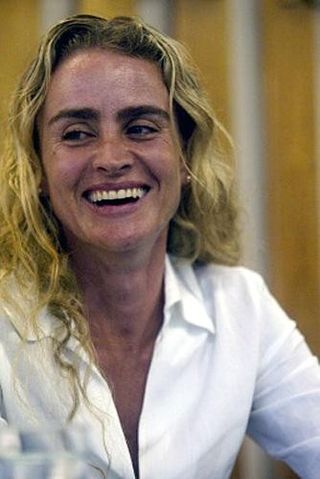Mirabella losing Athens bronze
By Mark Zalewski, North American Editor U.S. Olympic track cyclist Erin Mirabella's Athens bronze...

By Mark Zalewski, North American Editor
U.S. Olympic track cyclist Erin Mirabella's Athens bronze medal, which she won in the scratch race after Colombian Maria Luisa Calle tested positive for a banned substance, will be taken away from Mirabella and returned to Calle after the Court of Arbitration for Sport (CAS) determined Calle did not take the banned substance. Calle was disqualified from the scratch race by the International Olympic Committee (IOC) after Heptaminol was found in her system.
The IOC Executive Board decided last Thursday to re-award the bronze medal to Calle and has instructed the U.S. Olympic Committee to have the medal returned. Unfortunately, communication during this process has been lacking between the CAS, IOC and the national federations. Mirabella did not even know about the appeal until she read about in a news report last week. "It's been an emotional roller coaster - just the shock of it all," Mirabella told Cyclingnews. "This whole thing has been so confusing and so much to absorb. I need some time to look over the decision."
However, Mirabella is not going to delay in complying with the decision. "In the end I just want what is right to happen. I know Maria has been through a lot, and the last week I have been dealing with a lot, but this is the right decision. I am putting [the medal] in the mail to the U.S. Olympic Committee today."
Calle's defense said she had been prescribed Neo-Saldina by a doctor with the Colombian National Olympic Committee delegation for a migraine headache. During the CAS hearings, it was determined that the presence of Heptaminol in the Calle's sample was the result of the Neo-Saldina containing the substance Isometheptene, which transforms into Heptaminol during laboratory analyses. Since Isometheptene was not on the banned list during the 2004 Olympics nor was it determined to be similar to a banned substance, according to the World Anti-doping Agency's three criteria mentioned in article 4.3 of the World Antidoping Code (potential performance enhancement; health risk; violation of the spirit of sport.)
Mirabella was in her final preparations for the first world cup race of the season in Moscow when she learned of the news. "This week has been very distracting for me," she said. "I have trouble focusing during my workouts - some of which comes from the fourteen phone calls I get during my workouts! " But the 27 year old is not going to let this affect her performances in the future. "I don't think it will be a problem for future races. Each race is an opportunity to win a medal."
When asked wether this development will change her view on her 2004 Olympic experience, as well as future Olympic aspirations, Mirabella replied, "Before I was awarded the bronze I was still proud of my fourth place performance. I'm just taking it a season at a time, but the Olympics are only a couple of years away."
Get The Leadout Newsletter
The latest race content, interviews, features, reviews and expert buying guides, direct to your inbox!
Regardless, one of Mirabella's hopes is that the powers-that-be will use this as an example of how not to handle similar situations in the future. "I hope that in the future there is better communication to the athletes and the federation. It has made it so difficult. And the timeliness - having to wait fourteen months. And having false statements made over the past week about my status has really been hard."
Mirabella continues to look on the bright side of life, even with this less-than-ideal turn of events. "It's ironic that the day I am returning my medal is also the day I'm signing a contract for my children's book I am publishing. Just shows how when one door closes another one can open!"
Most Popular



